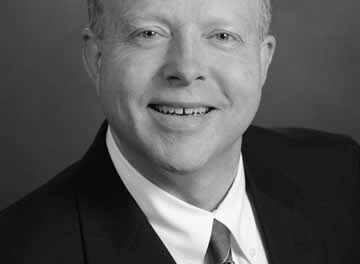It was all over way too fast. The five-week run of the world-renowned Eastern Music Festival (EMF) ended this evening after a summer of musical excellence that takes a back seat to no other festival, orchestra or teaching faculty. The oppressive wet-blanket North Carolina summer atmosphere broke, and it was a beautiful, cool evening as the concert patrons listened to a student trombone quartet playing outside Dana Auditorium on the Guilford College campus. There was more celebration indoors before the program began as flowers, checks, plaques, and general kudos were spread around to the administrators who make this wonderful festival possible. The only fly in the ointment for an otherwise perfect evening was a bum air conditioning system that resulted in much audience program fanning and the guys playing without their usual white jackets and black ties.
Gerard Schwarz, EMF Music Director, was on the podium, and he led the Eastern Festival Orchestra in as perfect an evening of music as you can ask for. The first half was taken up with the two masters of classical style — Mozart and Haydn. Mozart”s Overture to Don Giovanni is a masterful composite of the musical themes and emotions of the great opera.
Perhaps it was the increased temperature in the hall that affected the sound, but as soon as the orchestra belted out that deep, resonant D minor sonority, it seemed that it was the warmest, richest sound that I had ever heard. Of course, it may just be that Schwarz knows how to elicit this from the players. The overture, in exact reversal from the opera itself, proceeds from the minor, dark, netherworld to sunny, major optimism. The strings were exceptional, especially executing the numerous grace notes with great precision and unity.
For nearly 200 years, the C major Cello Concerto of Haydn, for all intents and purposes, did not exist. Although small fragments of the theme were present in some thematic catalogues, the work in its entirety was only discovered in Prague in 1961. Now one of the most popular and well-loved concertos for the cello, this is a pristine example of classical purity, grace and technical brilliance. The soloist was Xavier Phillips, a 37 year-old French cellist who was a protégé of Rostropovich. I was not familiar with this artist but his performance was one of the finest examples of great cello playing that I have yet heard. The first movement is characterized by a lively rhythmic figure that is passed from orchestra to soloist. The cadenza was quite remarkable, with a technical fluency and playfulness that was the essence of joy in music. The adagio movement allowed Phillips to display his burnished, soulful tone and sensitive phrasing. As the final movement began, you could see people looking around, all thinking the same thing: “Runaway train. This is just too freakin’ fast!” Not a chance. In fact, Phillipsat times, seemed to be teasing the orchestra as he nearly busted the radar detector, causing the other players to take several beats to catch up. Speed without substance can become tiresome, but Phillips had it all — humor, lightness, personal phrasing, and bottomless technique. All rose as if ejected from their seats to be rewarded with his encore performance of the sarabande from Bach’s G major Cello Suite.
Phillips might disagree, but the name of Richard Strauss strikes fear in the hearts and fingers of mortal musicians like myself. Most orchestral audition requirements include ridiculously difficult works like Strauss’ “Don Juan” and Ein Heldenleben, the work that Maestro Schwarz chose to close the 47th season of the EMF. Subtitled “A Hero’s Life,” this is a monumental work that requires an orchestra of extreme brilliance and stamina — thus the rarity of live performances. In music history courses, Strauss is usually depicted as the king of the tone poem — a musical composition that attempts to depict a story — and Ein Heldenleben is the king of kings. It begins with the cellos stating the profound theme that will be used throughout the first of the six connected movements. The grandeur of this is interrupted by mocking, almost maniacal woodwind motives that seem to say “get over yourself.”
Concertmaster Jeffrey Multer gave an inspired performance in what amounts to a violin concerto in the third movement. During much of the work we hear snippets of themes from many of Strauss’ other compositions, leading many to view this as a narcissistic and vulgar display. Bah, humbug. Every moment of this work is filled with unique orchestrations, majestic themes, and virtuosic playing that grabs the mind and heart to take you on a fabulous ride. You actually find yourself out of breath with wildly fluctuating vital signs from the enormous intensity and varying emotional states. Schwarz was masterful in his ability to sustain a clear beat to support the complexity of the score while also shaping and giving life to the life of the hero. The orchestra, alas, has exhausted my cache of superlatives in their final concert. If you have not yet heard them, you will have to wait until July 2009.











